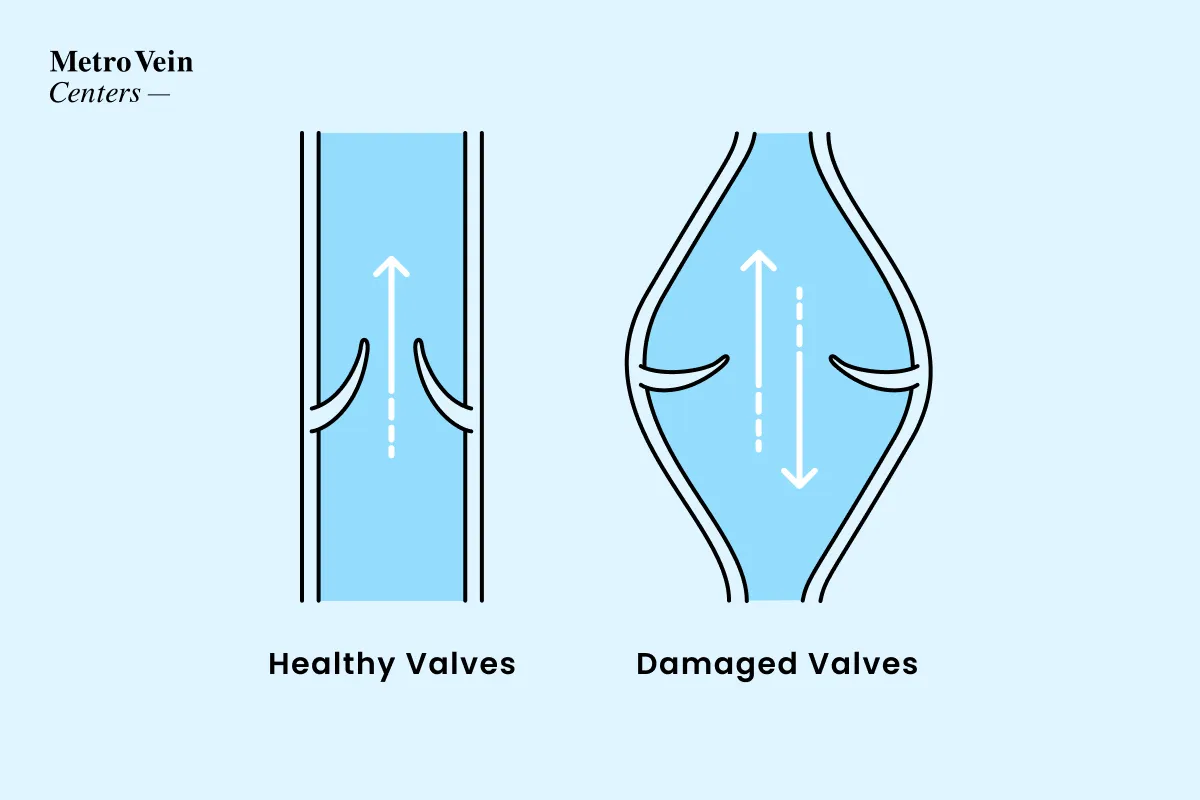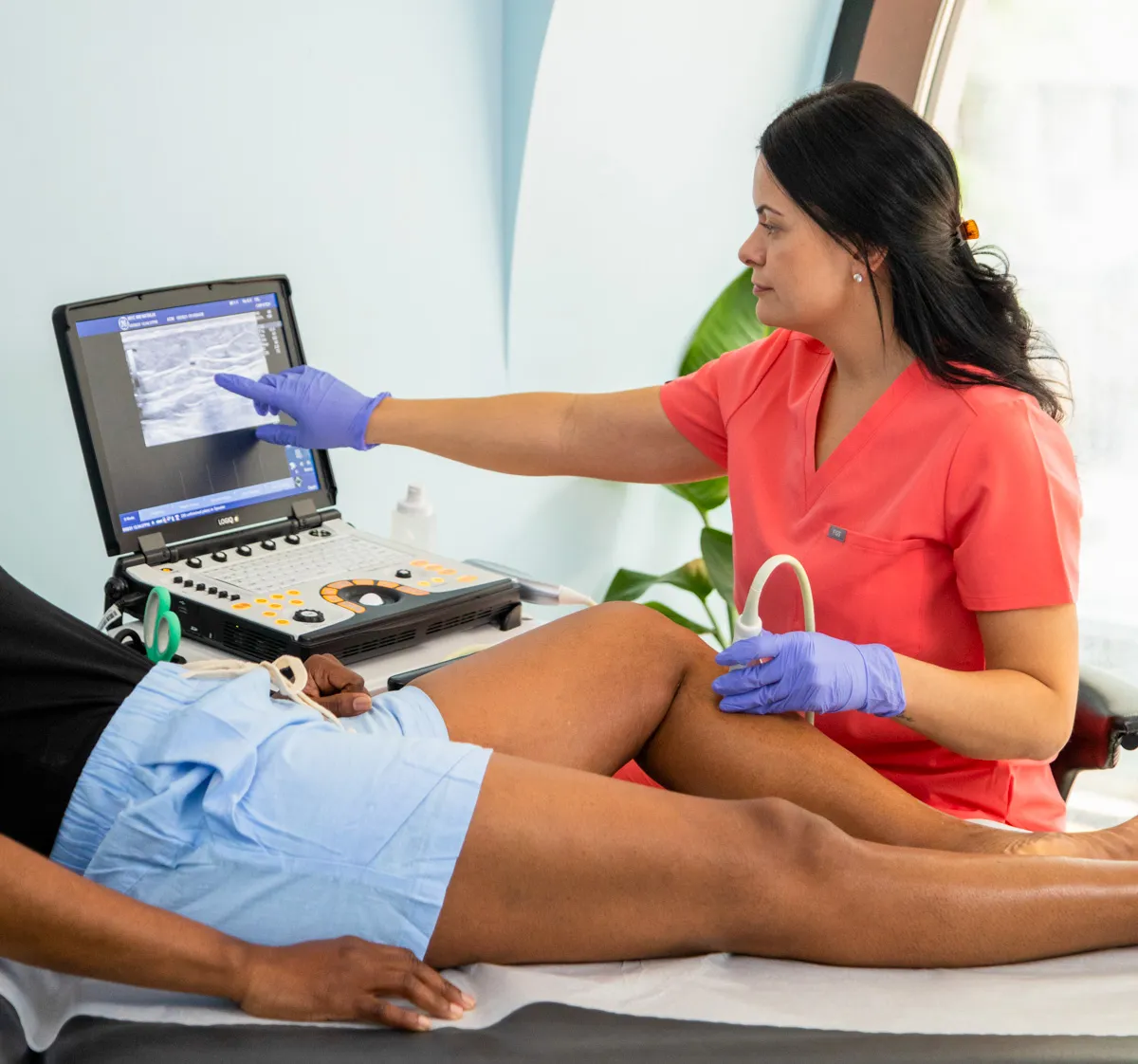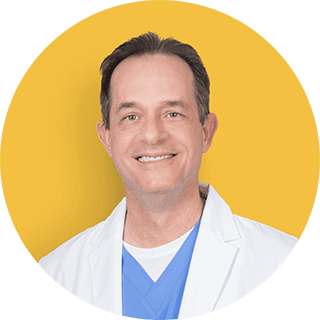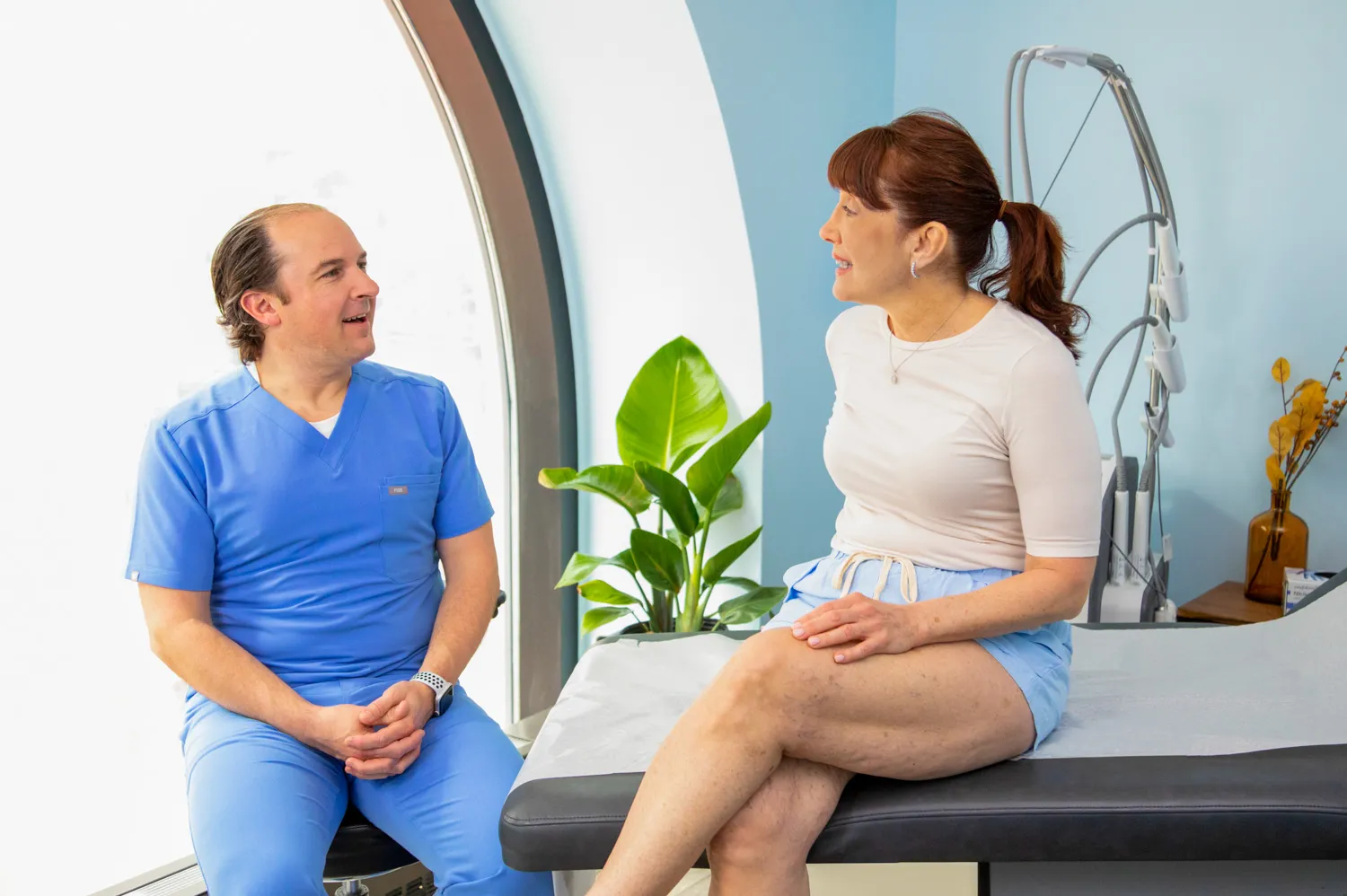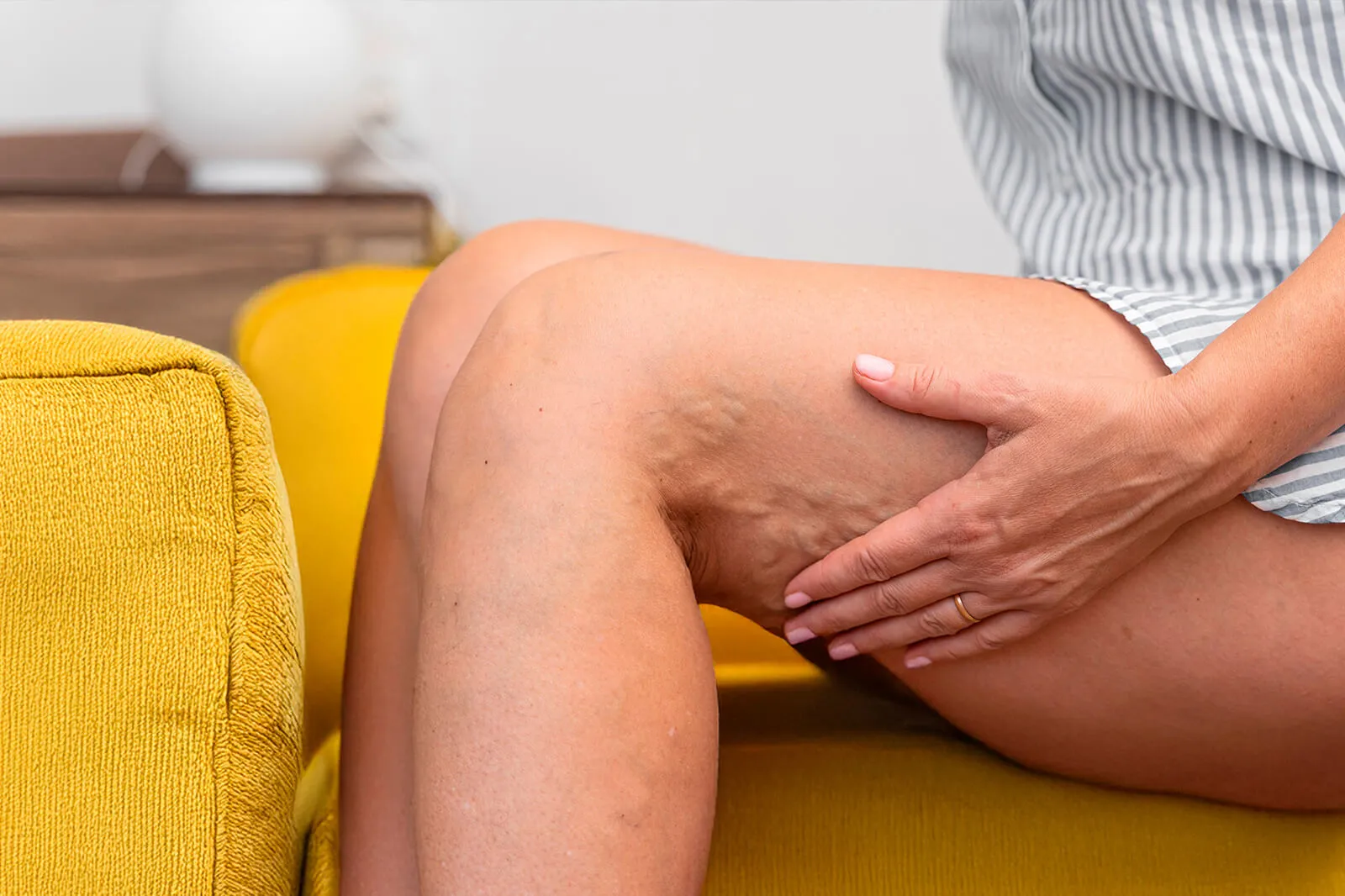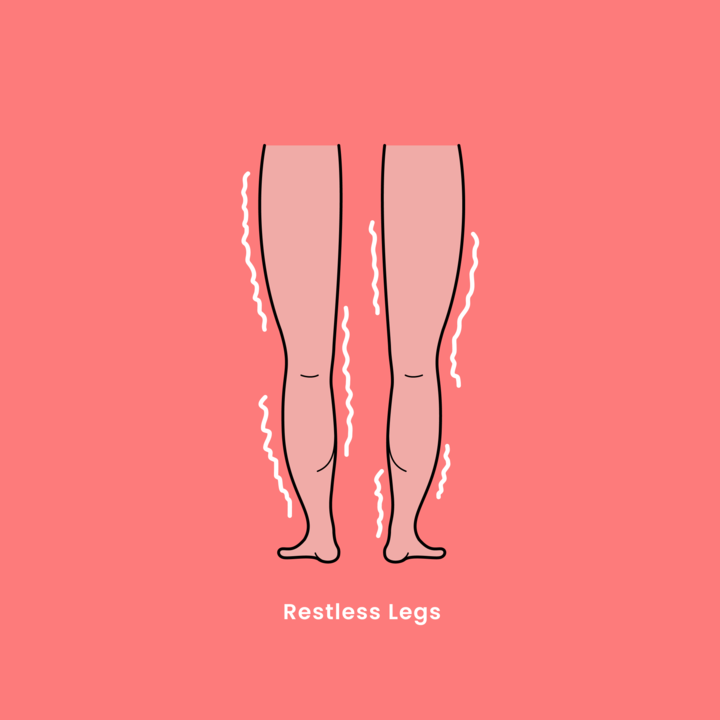
Restless Legs
Tingling in the legs, a sensation of ‘pins and needles’ or the constant urge to move your legs to avoid discomfort affects many of our patients with chronic venous insufficiency. Formally known as restless leg syndrome, this is a common often misunderstood symptom of vein disease that may regularly affect your daily life.
What causes restless legs?
Many people are surprised to learn that restless legs can be caused by malfunctioning veins. When the valves in veins are unhealthy, circulation in the veins decreases and blood can pool. This condition, known as vein disease or chronic venous insufficiency, can cause you to feel irritation and an inability to find a comfortable position both when awake or (more commonly) at night. Approximately 1 in 4 of people who suffer from restless legs are experiencing this discomfort due to chronic venous insufficiency.
Other symptoms that may be present alongside restless legs are aching legs, itching, burning, or tingling in the legs, as well as cramping either in the thigh or calves — all of which can be an indicator of underlying vein disease. When the valves in your veins become weakened or damaged, your veins have a much harder time pumping blood from your toes to your heart. As a result, we often see swelling, cramping, uncomfortable sensations, and constant fidgeting as very common side effects of damaged varicose veins.
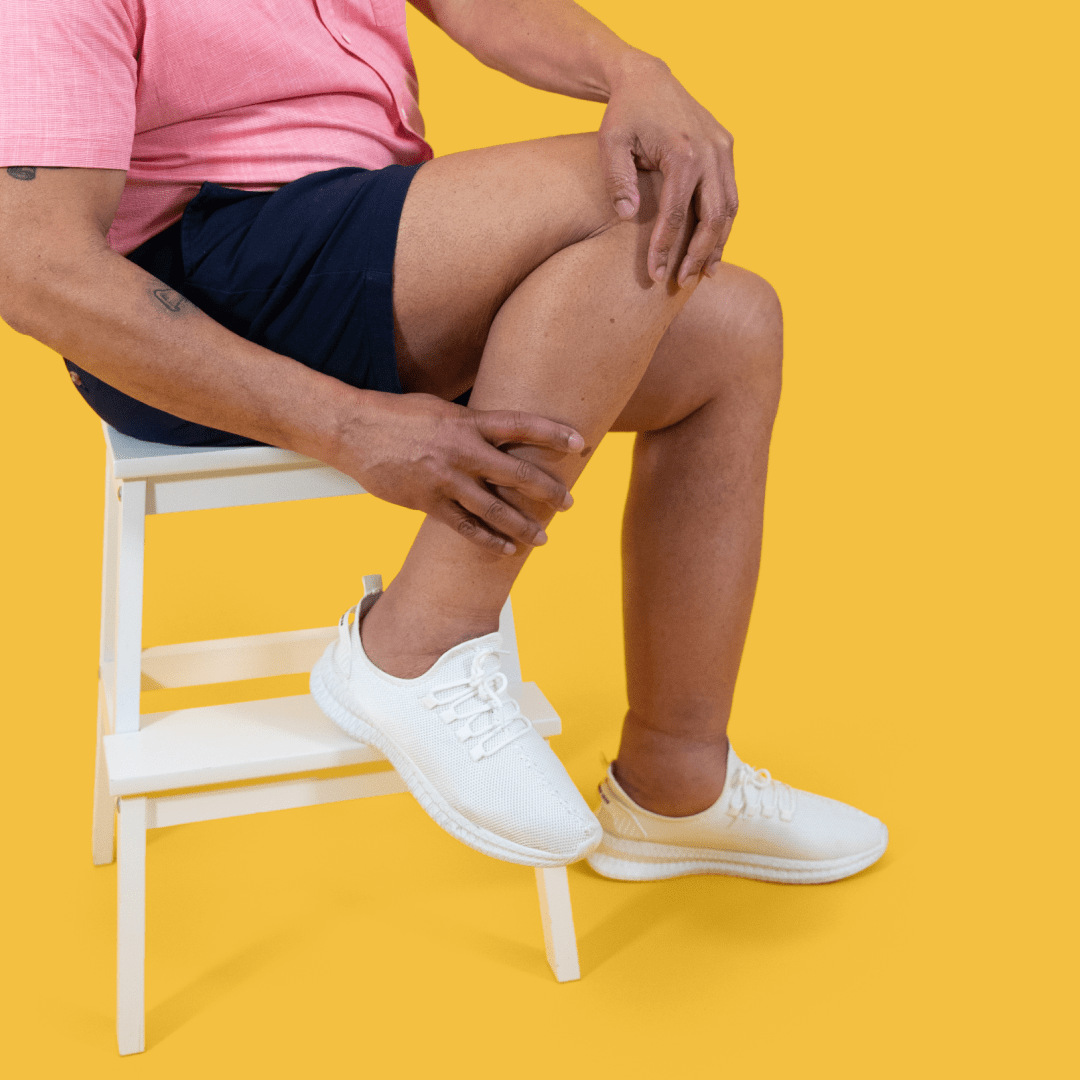
Are restless legs dangerous?
While restless legs are not life-threatening, they can be uncomfortable and significantly impact your quality of life. Restless legs are often indicative of a health issue beneath the surface of your skin. Varicose veins, which are distorted veins that primarily appear in the legs, are an uncomfortable medical condition. Visible symptoms like skin discoloration, ulcers, and textured skin, plus other symptoms such as tingling, burning, charley horses and more can cause significant disturbance to your day-to-day life.
Restless legs are a symptom of vein disease and will worsen if left untreated. It’s best to seek medical treatment for your vein care concerns when you first begin to notice symptoms. Seeking vein treatment proactively will prevent your restless leg symptoms from progressing to more advanced forms of vein disease including venous ulcers or blood clots. If you experience cramping around visible varicose veins, or a tingling, uncomfortable sensation you can’t place the origin of, it’s time to consult a vein specialist.
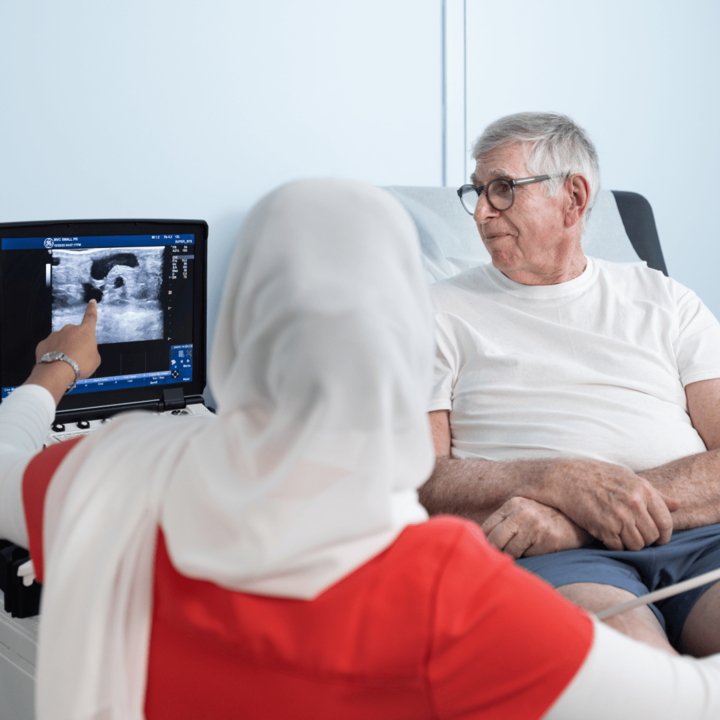
What are the risk factors for restless legs?
Because the root cause of vein disease may be a genetic or hereditary issue, there may not always be a clear “risk” that leads to varicose vein complications like restless legs or discomfort. However, there are some factors that make a person more likely to develop varicose veins and related symptoms like restless legs.
Do you ...
- Smoke?
- Have children?
- Know a family member with varicose veins?
- Take hormonal birth control?
- Work a job that requires long hours of sitting or standing?
- Lead a sedentary lifestyle?
- Exercise rarely (or never)?
- Consume below-average amounts of iron?
Are you ...
- A pregnant or postpartum woman?
- Over the age of 30?
- Diagnosed as overweight?
Women are more likely to develop varicose veins than men, as fluctuations or spikes of the estrogen hormone are linked to vein disease. Family history plays a significant role in the appearance of venous insufficiency and varicose veins. Most people who have varicose veins also know a family member with spider veins, varicose veins, or a form of vein disease.
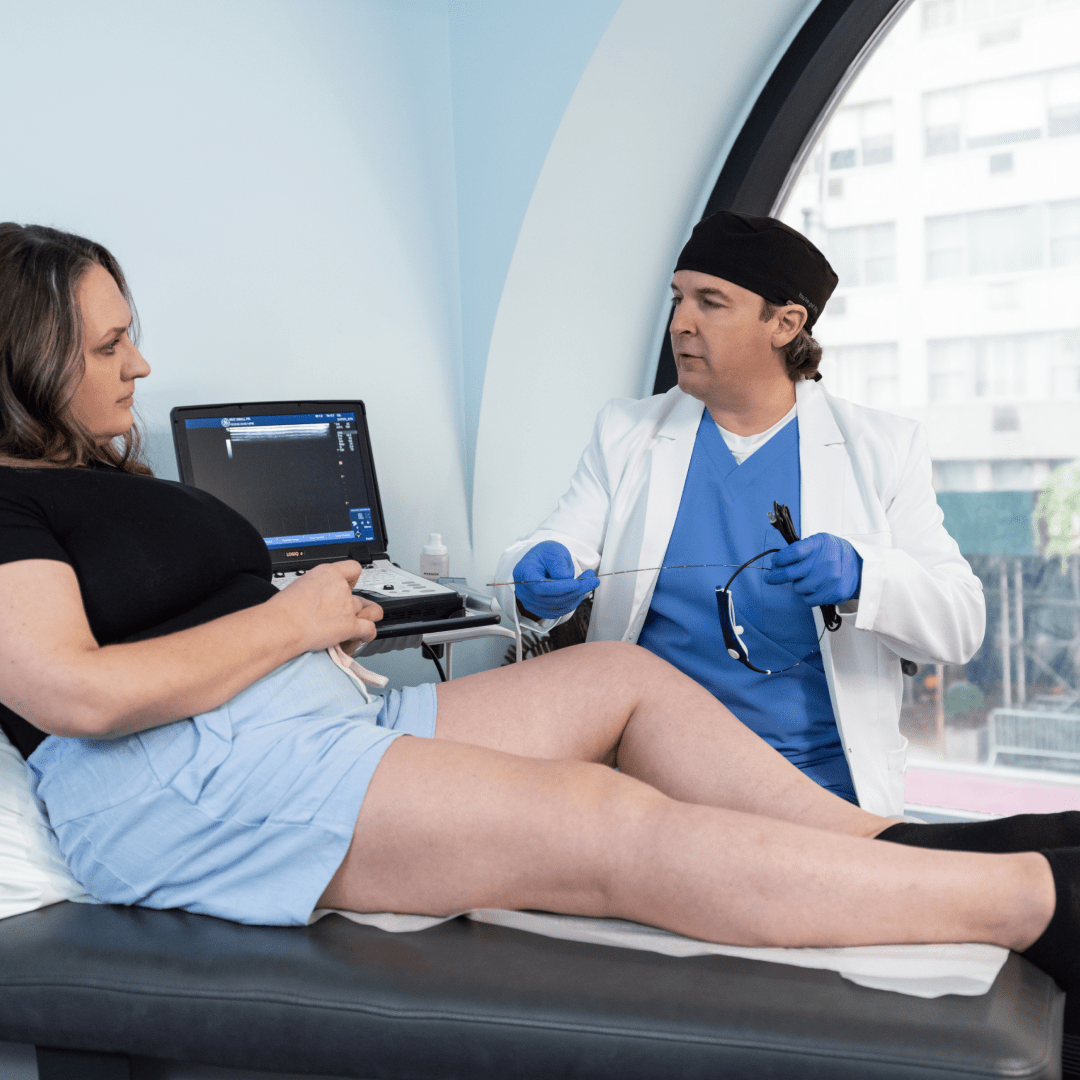
What can you do to treat prevent restless legs?
Because restless legs are often a symptom of vein disease and chronic venous insufficiency, our team of board-certified vein doctors will conduct a free vein evaluation to better understand your unique symptoms, which may include varicose veins and spider veins. We pride ourselves on patient-focused care, and we build a care plan specific to each of our patients. Because restless legs can be caused by underlying factors with your veins, treating the health concern may eliminate your symptoms.
Restless legs, if caused by venous insufficiency, can be treated in a variety of minimally invasive ways. Injectable medicines such as varithena and sclerotherapy work on smaller varicose veins. Radiofrequency ablation and endovenous laser ablation can tackle larger varicose veins by using heat and pulsing radiofrequency energy to gently seal the diseased vein. VenaSeal is a medical-grade bioadhesive that seals varicose veins to redirect blood flow, and does not require the use of compression socks after treatment. Microphlebectomy removes a small portion of the malfunctioning vein for immediate results.
To find the best restless leg treatment for your specific concerns and symptoms, it’s always recommended to consult with a board-certified vein doctor or vein specialist, and the sooner the better! Vein disease is progressive, which means it worsens over time if left untreated, and the only way to diagnose vein disease is to be evaluated by professionals. We accept more than 200 insurance plans and are happy to discuss the details with your vein specialist, who will develop a custom treatment plan for your unique needs. Give us a call! We’re here to help.
Don’t let restless legs keep you up at night! Schedule your free vein evaluation today, and let our team of vein specialists put your worries to rest. For more information on restless legs and varicose veins, book a free evaluation at one of our nationally accredited vein clinics nearest you. We can be reached at 866-629-9848 with any questions.
Restless Legs Myth Busting Q&A
The primary complaint around restless legs is that this makes it harder to fall asleep. While cramping and tingling may occur throughout the day, and are both common symptoms of vein disease, restless legs tend to cause discomfort at the end of the day or during periods of rest such as in a car or plane. Patients often experience “charley horse” cramps as they try to fall asleep, or cannot get comfortable no matter how often they shift their position. While all three symptoms may co-exist, cramps and tingling may exist throughout the day or impact sleep — but it’s typically restless legs that keep patients awake at night.
Hyperactivity, such as bouncing a leg or tapping a foot, is not necessarily indicative of vein disease. Restless leg syndrome can also be caused by anxiety, boredom, or even motor tics associated with Tourrette syndrome.
How can you tell the difference between a boredom bounce and a symptom of vein disease? Evaluate your body, risk factors, and lifestyle choices: if you experience chronic pain in either leg (or both) unrelated to exercise or injury, if your family has a history of vein disease, or if you find yourself noticing visible, twisted veins on your legs, your next course of action should be to consult a vein specialist. Our team of board-certified vein doctors can confirm whether or not your symptoms are tied to varicose veins. If you find your toes tapping or leg jittering while you watch television, during long wait periods, or as you multitask, you may not have anything to worry about. Regardless, put your mind at ease; our vein evaluations are free of charge.
Restless leg syndrome can be caused by anxiety, stress, or other mental health factors, but when paired with leg pain, visible veins, swelling in the legs, itching, aching, or other symptoms of vein disease, the root cause is likely chronic venous insufficiency. If you suspect or are concerned that your restless legs are caused by vein disease, it’s best to speak with a board-certified vein doctor trained in the treatment of vein disease and chronic venous insufficiency.
Varicose veins, while often visibly bulged against the surface of the skin, can also mean there are issues in your deep veins, which are buried near the muscle layers in your legs. When vein disease forms in deep veins, it is not always able to be detected by the naked eye. Deep vein varicosities may cause similar discomfort as varicose veins you can see, but they are too deep in your leg to show themselves. Our vein specialists utilize ultrasound technology to examine the veins in your legs, including your deep veins, for signs of varicosities and blood clots (this is known as Deep Vein Thrombosis, or DVT).
Understanding symptoms of vein disease can help you get to a vein specialist in the early stages and prevent symptoms from worsening. If you’re concerned about restless legs and varicose veins, and you experience other symptoms of vein disease but you cannot see any varicose veins, our vein doctors may investigate your deep veins for signs of varicosities and DVT with ultrasound technology to find the root cause of your restless legs.
How do Vein Treatments Work?
Vein treatments work by closing off unhealthy veins, just in different ways! Once closed, blood flow naturally reroutes through neighboring healthy veins.
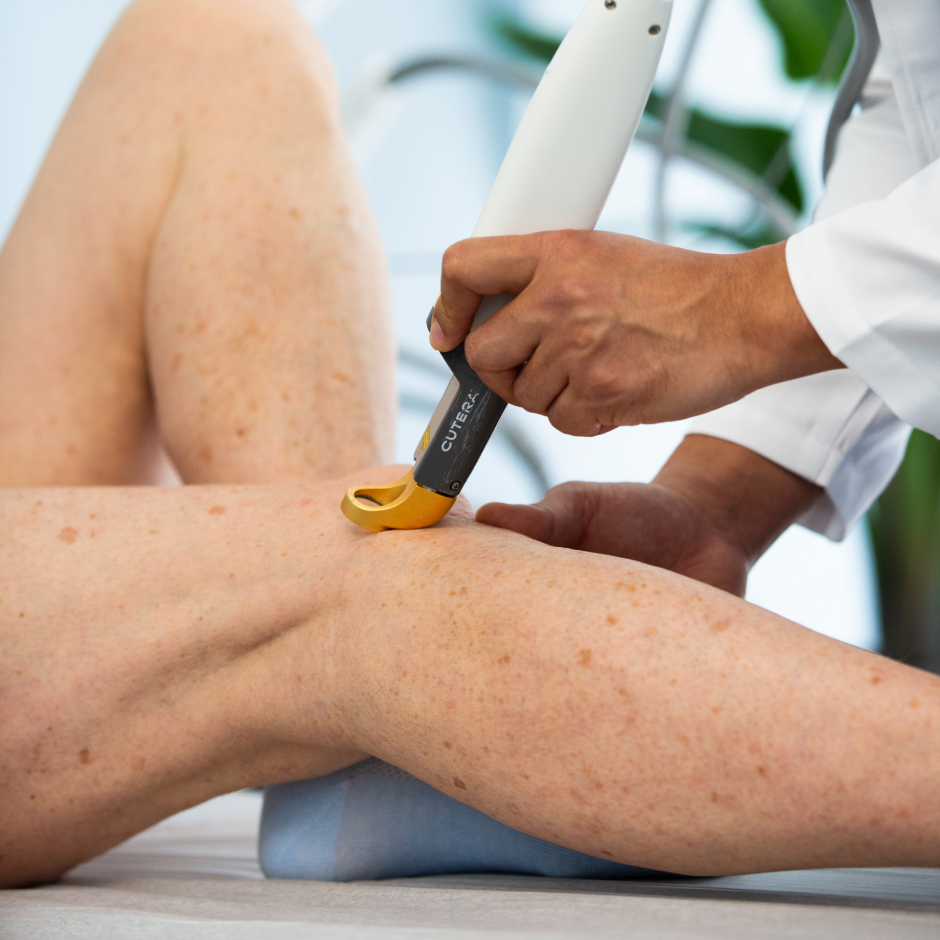

Restless Legs Treatments
- State-of-the-Art
- Ultrasound Guided
- Less Than 30 Minutes
- FDA-Approved
- Minimally Invasive
- Minimal Downtime
Let’s talk about you
What are your veins like?
Get a snapshot of your vein health in just a few clicks.


